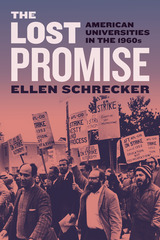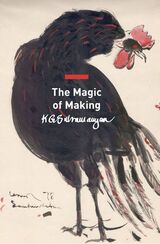8 start with S start with S
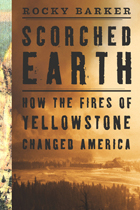
In 1988, forest fires raged in Yellowstone National Park, destroying more than a million acres. As the nation watched the land around Old Faithful burn, a longstanding conflict over fire management reached a fever pitch. Should the U.S. Park and Forest Services suppress fires immediately or allow some to run their natural course? When should firefighters be sent to battle the flames and at what cost?
In Scorched Earth, Barker, an environmental reporter who was on the ground and in the smoke during the 1988 fires, shows us that many of today's arguments over fire and the nature of public land began to take shape soon after the Civil War. As Barker explains, how the government responded to early fires in Yellowstone and to private investors in the region led ultimately to the protection of 600 million acres of public lands in the United States. Barker uses his considerable narrative talents to bring to life a fascinating, but often neglected, piece of American history. Scorched Earth lays a new foundation for examining current fire and environmental policies in America and the world.
Our story begins when the West was yet to be won, with a colorful cast of characters: a civil war general and his soldiers, America's first investment banker, railroad men, naturalists, and fire-fighters-all of whom left their mark on Yellowstone. As the truth behind the creation of America's first national park is revealed, we discover the remarkable role the U.S. Army played in protecting Yellowstone and shaping public lands in the West. And we see the developing efforts of conservation's great figures as they struggled to preserve our heritage. With vivid descriptions of the famous fires that have raged in Yellowstone, the heroes who have tried to protect it, and the strategies that evolved as a result, Barker draws us into the very heart of a debate over our attempts to control nature and people.
This entertaining and timely book challenges the traditional views both of those who arrogantly seek full control of nature and those who naively believe we can leave it unaltered. And it demonstrates how much of our broader environmental history was shaped in the lands of Yellowstone.
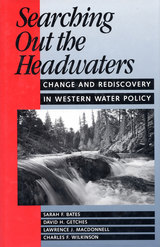
To the uninitiated, water policy seems a complicated, hypertechnical, and incomprehensible subject: a tangle of engineering jargon and legalese surrounding a complex, delicate, and interrelated structure. Decisions concerning the public's waters involve scant public participation, and in such a context, reform seems risky at best.
Searching Out the Headwaters addresses that precarious situation by providing a thorough and straightforward analysis of western water use and the outmoded rules that govern it. The authors begin by tracing the history and evolution of the uses of western water. They describe the demographic and economic changes now occurring in the region, and identify the many communities of interest involved in all water-use issues. After an examination of the central precepts of current water policy, along with their original rationale and subsequent evolution, they consider the reform movement that has recently begun to emerge. In the end, the authors articulate the foundations for a water policy that can meet the needs of the new West and discuss the various means for effectively implementing such a policy, including market economics, regulation, the broad-based use of scientific knowledge, and open and full public participation.

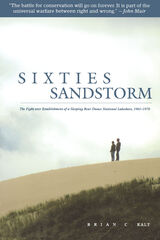
Sixties Sandstorm is not a book about dunes as much as it is a book about people and their government. It chronicles the public meetings, bills, protests, and congressional interactions that led to the signing of the Sleeping Bear Sand Dunes Act in 1970. The Dunes park fight is a case study of the politics, the legislative process, citizen response to the expanded role of government in the 1960s, and the rise of the environmental movement in America during that decade. Since Hart's legislation was made law, millions of Americans have traveled to the Sleeping Bear Sand Dunes National Lakeshore. Few imagine what the area would look like today if not for the efforts of people like Senator Hart. On the other hand, few appreciate the sacrifice of the landowners who-not always willingly-gave up their property in this place where, as one resident put it, "stars are closer to the earth than anywhere else in the world."

The explosion of interest in African environmental history has stimulated research and writing on a wide range of issues facing many African nations.
This collection represents some of the finest studies to date. The general topics include African environmental ideas and practices; colonial science, the state and African responses; and settlers and Africans' culture and nature. The contributors are Emmanuel Kreike, Karen Middleton, Innocent Pikirayi, Terence Ranger, JoAnn McGregor, Helen Tilley, Grace Garswell, John McCracken, Ingrid Yngstrom, David Bunn, Sandra Swart, Robert J. Gordon, and Jane Carruthers.
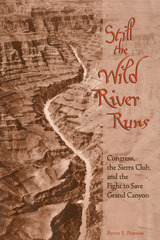
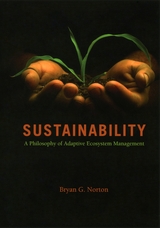
Emphasizing cooperation and adaptation through social learning, Norton provides a practical framework that encourages an experimental approach to language clarification and problem formulation, as well as an interdisciplinary approach to creating solutions. By moving beyond the scientific arena to acknowledge the importance of public discourse, Sustainability offers an entirely novel approach to environmentalism.
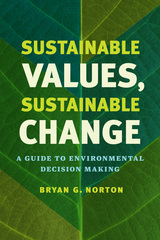
While economists, philosophers, and ecologists argue about what in nature is valuable, and why, Norton here offers an action-oriented, pragmatic response to the disconnect between public and academic discourse around sustainability. Looking to the arenas in which decisions are made—and the problems that are driving these decisions—Norton reveals that the path to sustainability cannot be guided by fixed, utopian objectives projected into the future; sustainability will instead be achieved through experimentation, incremental learning, and adaptive management. Drawing inspiration from Aldo Leopold’s famed metaphor of “thinking like a mountain” for a spatially explicit, pluralistic approach to evaluating environmental change, Norton replaces theory-dependent definitions with a new decision-making process guided by deliberation and negotiation across science and philosophy, encompassing all stakeholders and activists and seeking to protect as many values as possible. Looking across scales to today’s global problems, Norton urges us to learn to think like a planet.
READERS
Browse our collection.
PUBLISHERS
See BiblioVault's publisher services.
STUDENT SERVICES
Files for college accessibility offices.
UChicago Accessibility Resources
home | accessibility | search | about | contact us
BiblioVault ® 2001 - 2025
The University of Chicago Press


